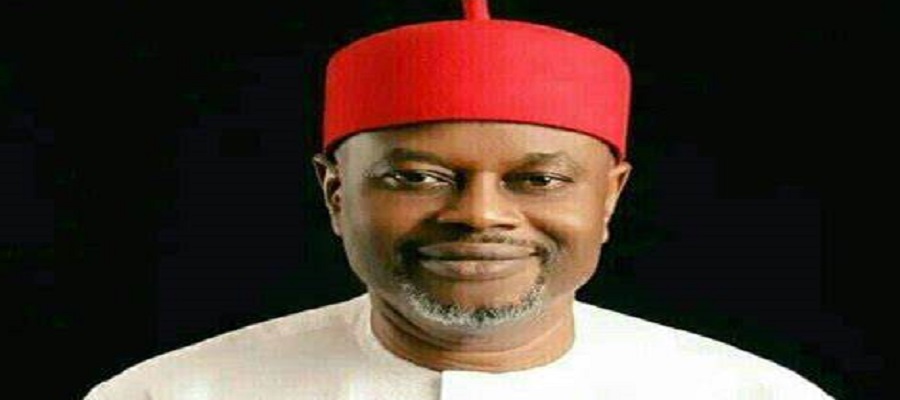Broadcasting
BBNaija Season 7 Begins this Saturday

The seventh season of Big Brother Naija will have a double launch this weekend on Saturday, July 23, and Sunday, July 24 at 7 pm on Africa Magic Showcase, Urban and Family. The show will also air on the 24/7 Big Brother Naija channel on DStv 198 and GOtv channel 29, as well as on Showmax.

Fans of the show will love this season because several pre-COVID elements are returning to the game, such as the Ninjas and live studio audience. BBNaija lovers can also expect a line-up of more engaging tasks, unpredictable twists and Big Brother’s wit.
Africa’s biggest reality show organised by MultiChoice Nigeria will begin with the two-part launch weekend before plunging into 72 days of what promises to be dramatic, insightful and downright entertaining content. Viewers should expect to experience talented youngsters, bellyaching laughs, emotional moments and candid advice from Ebuka throughout the season.
The headline sponsor of Big Brother Naija season 7 is Pocket by PiggyVest (formerly Abeg), and the associate sponsor is Flutterwave. Viewers can also watch the show via the DStv app on multiple devices at no additional cost. The app is available for download on iOS and Android devices.
Big Brother Naija season 7 will also be available on the African streaming platform, Showmax across Sub-Saharan Africa, the United Kingdom and the Republic of Ireland. DStv Premium customers can enjoy access to Showmax at no extra cost as part of their DStv subscription. DStv Compact Plus and Compact customers can access Showmax for only half the price.
DStv customers who would like to opt-out of viewing the show can do so by sending “Smart card number [space] BBOUT” to 30333, while GOtv customers can do the same by sending “IUC Number [space] BBOUT” to 4688. Additionally, customers can activate the parental control option on their DStv and GOtv decoders for viewers younger than 18 years old.
Broadcasting
Subscriber Withdraws Suit against MultiChoice, FCCPC over Price Hike

Festus Sanmi Onifade, subscriber and legal practitioner, has withdrawn his lawsuit challenging alleged unfair price hikes by MultiChoice Nigeria Limited, filed at the Federal High Court in Abuja.

Also listed as a defendant in the suit is the Federal Competition and Consumer Protection Commission (FCCPC).
In a notice of discontinuance, dated April 1, 2025, the claimant formally informed the court of his decision to wholly withdraw the suit, marked FHC/ABJ/CS/363/2025.
However, the notice, signed by Onifade, did not advance reasons for the withdrawal.
Onifade had earlier approached the court to challenge what he described as an unfair and unjust price increase announced by MultiChoice Nigeria, slated to take effect from March 15, 2025.
In the originating summons, he asked the court to determine, among other things, whether, given Section 128 of the Federal Competition and Consumer Protection Act, 2018, and other relevant laws, the notice of the impending price increase issued by the first defendant was not unfair, unjust, grossly inadequate and a breach of his consumer rights; whether, considering the subsisting appeal in MultiChoice Nigeria Ltd & Ors v. Festus Onifade & Ors, the defendant was not stopped from further increasing the price of its services.
The suit centred on legal tussle between Onifade and MultiChoice over price hikes, which the claimant insisted were being implemented in defiance of regulatory standards and without adequate consumer engagement.
Broadcasting
Starlink, DStv, Others Pay “Peanuts” to Operate in Nigeria- Minister

Uche Nnaji, minister of Innovation, Science and Technology, has, said that the federal government has been exploring measures to curb the growing exploitation of satellite technologies, lamenting that Starlink, DStv, and a few other service providers pay ‘peanuts’ to operate in Nigeria.

According to him, some foreign investors have been known to find a way to bypass the system and deprive the government of its mandatory revenues.
The minister made the revelation at a stakeholders’ Workshop on Space Regulation organised by the National Space Research and Development Agency (NASRDA) in Abuja.
Addressing the gathering, Nnaji noted that if the regulation of space is properly handled, it would not only boost revenue, it will also whittle down the growing activities of pipeline vandals, insurgents and criminal groups.
He said, “In the near future, we will move from the $ 1 trillion economy to $ 5 trillion. So with this space regulation and licensing. Starlink and most of them, including DSTV will come here, some will pay peanuts and shortchange Nigerians. These are part of what we want to address through this space regulation and license.
“You can be sure that yearly, if we are going by what my capacity DG of NASRDA has said, we will be looking at over N200 billion annually, with annual increment of 18-20 per cent. This is just one of the initiatives coming out of the agency.”
Continuing, Nnaji said the era of satellite pay-tv or radio losing signal when it is raining will soon be a thing of the past.
The minister said they have discovered some service providers are not operating on the right bandwidths hence the loss of signal when there is a change in weather.
“All these challenges of your TV or radio not working or losing signal whenever it is raining are because the DSTV and the likes are not hosting their equipment at the right bandwidth. They will host it at the lower bandwidth, where they will not spend money on the higher bandwidth.
“But with the regulation, we will force them to move it up to where it’s supposed to be. Because if you move it up to where it’s supposed to be, you won’t have any of those problems of losing signal as soon as it starts raining. So this is part of the many reforms that are going on under this very capable man, Dr. Olumide Adepoju.
Broadcasting
Nigeria Eyes $20Bn Annual Revenue from Space Economy – Minister

Federal government has announced its target of generating over $20bn annually from Nigeria’s rapidly evolving space economy, leveraging a newly launched space security platform and comprehensive regulatory reforms.

Speaking at the launch event in Abuja on Tuesday, Chief Uche Geoffrey Nnaji, minister of Innovation, Science and Technology, unveiled the government’s strategic plans to capitalize on space technologies for national revenue generation, particularly in key sectors like oil monitoring and maritime surveillance.
“With space-based surveillance, we can detect vessels entering Nigerian waters—even those that switch off their transponders to evade detection. We’ll be able to track them, ensure compliance, and collect the appropriate fees. This initiative alone could yield over $20 billion annually,” he said.
The Minister emphasised that Nigeria’s space economy is no longer a futuristic dream but a present-day economic lever.
“Space is no longer the domain of dreamers alone—it is now the frontier of serious business, innovation, and national security,” he declared.
“Our task is clear: to establish a transparent, well-regulated ecosystem where public and private actors—from startups to established institutions—can thrive,” he added.
The new space security platform is tied to the enforcement of Nigeria’s 2015 Regulations on the Licensing and Supervision of Space Activities.
Section 4(1), mandates that no one “shall carry out activities to which the Regulations apply except under the authority of a license granted by the National Space Council.”
These regulations aim to hold local and foreign operators—such as Starlink and DSTV—accountable under Nigerian law.
“Currently, some pay appropriate fees, while others contribute minimally, shortchanging Nigerians. This new regulatory framework will address that imbalance,” Nnaji stated.
Dr. Matthew Adepoju, director general, National Space Research and Development Agency (NASRDA), echoed the Minister’s sentiments, highlighting the economic, security, and youth empowerment potential of the sector.
“Nigeria must remain a forward-thinking nation. We must ensure that space activities within our jurisdiction are properly regulated, commercially optimized, and aligned with international best practices,” Adepoju said.
According to NASRDA, Nigeria can generate about N200bn annually from space-related activities, with potential growth rates of 18–20 per cent per year.
The workshop, which gathered key stakeholders from government, academia, and the private sector, marks a pivotal shift in Nigeria’s approach to space as a tool for development.
It also underscores the urgency to reform existing legal frameworks.
Dr. Olisa Agbakoba, legal expert, who also spoke at the event, criticized Nigeria’s outdated space laws.
“Our current laws are outdated. The NASRDA Act is not a true space law. We need a clear economic strategy for space, legal reform, and an updated National Space Policy,” he said.
Agbakoba proposed creating a Center for Space Law and emphasized that space should contribute at least 2% to Nigeria’s GDP.
“Let’s learn from countries like the UAE. Why not aim for Nigerian astronauts—male and female?” he asked.
Mrs. Esuabana Asanye, permanent secretary of the Ministry, while unveiling the new NASRDA logo, positioned the current phase as a new era in Nigeria’s space journey: “We are now turning the page from the first 25 years, and ushering in a new era—one that will redefine Nigeria’s presence in space.”

 General News2 days ago
General News2 days agoAFD Commits €3m to Africa’s Financial Inclusion

 E-Financial2 days ago
E-Financial2 days agoVerve Expands Payment Frontiers with Global Partnerships, Contactless Innovation

 General News2 days ago
General News2 days agoEU Aims to Remove Barriers to AI Development

 E-Business1 day ago
E-Business1 day agoCyberattacks: ‘56 Percent of Cases Stem from Existing Logins

 News2 days ago
News2 days agoFG Inaugurates Board of Galaxy Backbone

 E-Business2 days ago
E-Business2 days agoAfrica Plans to Establish a $60Bn AI Fund

 Broadcasting1 day ago
Broadcasting1 day agoSubscriber Withdraws Suit against MultiChoice, FCCPC over Price Hike

 E-Business1 day ago
E-Business1 day agoKaspersky Presents Insight on 14% Increase in Spyware Attacks on Businesses in Africa @ GITEX Africa





















